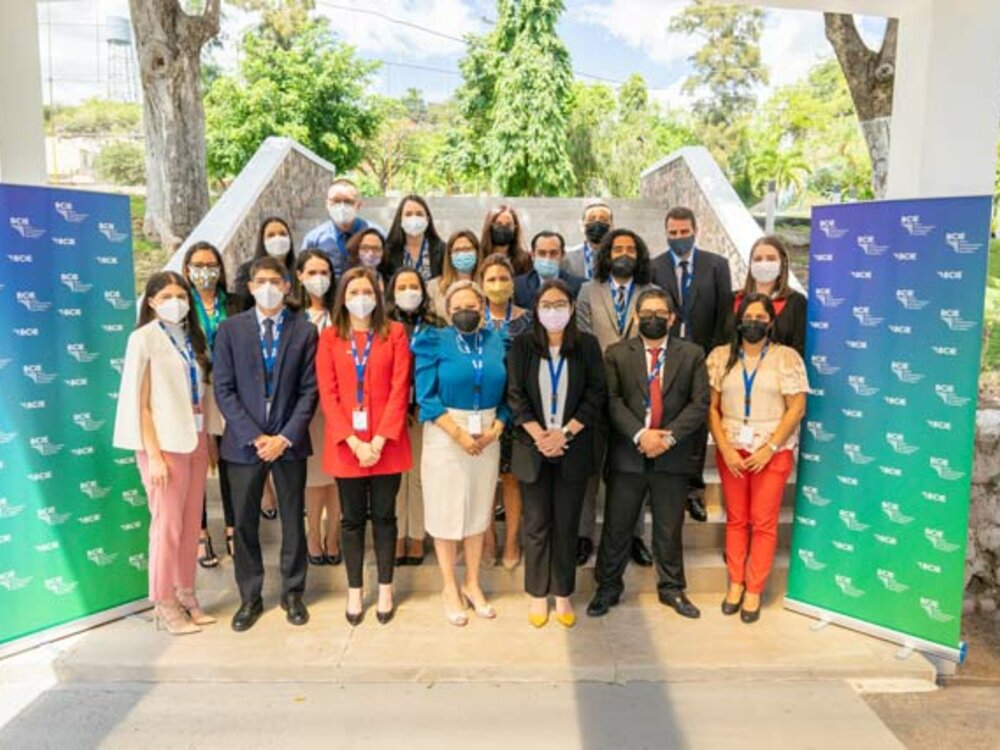In commemoration of International Anti-Money Laundering Day, CABEI and GAFILAT hold workshop on trends in beneficial ownership identification

Tegucigalpa, October 26, 2021.- In order to strengthen the capacities of the competent authorities working in the fight against Money Laundering and Terrorist Financing, according to the international standard established by the Financial Action Task Force (FATF), this Tuesday the Central American Bank for Economic Integration (CABEI) and the Latin American Financial Action Task Force (GAFILAT), together with the Financial Intelligence Unit (FIU) of the National Banking and Insurance Commission of Honduras, developed the "Workshop on Best Practices and Trends in the Identification of the Final Beneficiary".
At the opening ceremony, CABEI Executive President, Dr. Dante Mossi, noted that it is essential for countries to learn best practices on how to combat crimes related to money laundering.
Likewise, Dr. Esteban Fullin, Executive Secretary of GAFILAT, highlighted that during last week in the framework of the FATF Representatives Plenary, they were working on the issue of beneficial ownership, analyzing a series of measures to further enhance the transparency of legal persons, which as we know is one of the most used typologies in large cases, in laundering structures (and not simple maneuvers) and especially linked to all types of corruption.
For its part, the National Honduran Coordination through Commissioner José Adonis Lavaire of the National Banking and Insurance Commission (CNBS) explained that the supervisory body of the Honduran Financial System has been making great efforts and remains committed to contribute to the different jurisdictions to have robust, solid and coordinated systems for the prevention, control and combat of money laundering crimes and financing of terrorism, since it is necessary that the actors of the system are trained and in tune with the challenges that these times demand.
The workshop was conducted in a hybrid manner, with participants from more than 15 countries attending in person and remotely, and discussed fundamental questions about the mechanisms implemented and their scope, in order to provide a clearer vision to the countries that are developing the regulatory and institutional foundations, which need to be strengthened in order to ensure the effective identification of the beneficial owner and thus ensure that the competent authorities are able to obtain in a timely manner adequate, accurate and updated information on the beneficial owner and control of corporations and other legal persons created in the countries.
A beneficial owner is defined as the natural person who ultimately owns or controls a legal entity and/or natural person on whose behalf a transaction is carried out.
The experiences of some countries that have implemented a multi-factor approach were also presented, as well as those that have focused on a specific mechanism, such as having a registry of final beneficiaries, placing responsibility on companies or legal entities, or using existing information held by designated non-financial activities and professions, financial institutions or relevant authorities.
CABEI is making progress in building a development bank at the forefront of innovation in the face of the challenges of a changing environment that the region demands in order to face future challenges and guarantee a service that meets the needs of its members.





![[Translate to English:] [Translate to English:]](/fileadmin/_processed_/e/3/csm_WhatsApp_Image_2024-04-18_at_2.12.23_PM__2__590ef43ade.jpeg)
